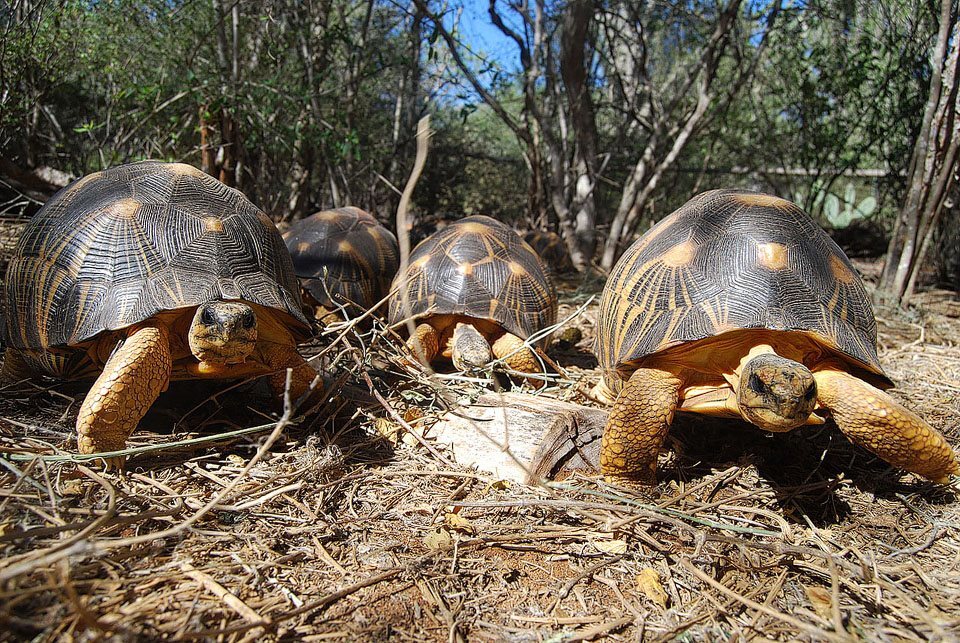With a surface area of 587,040 km², Madagascar is home to tropical rainforests and dry forests that favour the evolution of several plant species, but above all a rich fauna made up of 294 species of birds, 247 species of amphibians (frogs, toads, etc.) and some 300 species of reptiles including crocodiles and lizards. However, this rich biodiversity is threatened by poaching and illegal export.
While these illegal practices are carried out for consumption or medical experiments, the World Wildlife Fund (WWF) calls for the sustainable management of the island nation’s natural potential. Globally, “64% of protected species, including 30,875 turtles seized between 2005 and 2020, come from Madagascar,” says the Paris-based organisation.
Other wild animals affected by this alarming finding include lemurs, which are in danger of extinction in Sambava, Antalaha, Vohemar and Andapa in the Sava region of northeast Madagascar. Moreover, this species of monkey endemic to the island is classified on the red list of the International Union for Conservation of Nature (IUCN). In May 2022, local authorities arrested two poachers for “illegally holding and transporting 46 lemurs for resale at a price of 20,000 ariarys (4.3 euros) per unit.
Protecting biodiversity
In this context, conservation initiatives are multiplying in this East African country. One example is the Fight Against Corruption and Species Trafficking project, which has been implemented since 2021 by the Malagasy branch of the United States Agency for International Development (USAID) in partnership with WWF, Transparency International and the non-governmental organisation (NGO) Traffic, based in Cambridge, UK.
Read also-AFRICA: WWF and IUCN suggest a $60 billion fund for biodiversity
The project, which is based on the Convention on International Trade in Endangered Species of Wild Fauna and Flora (CITES), promotes “better law enforcement for environmental crimes and mechanisms for sustainable governance of forest resources,” says Nanie Ratsifandrihamanan, WWF’s country director for Madagascar and the western Indian Ocean islands.
Benoit-Ivan Wansi
